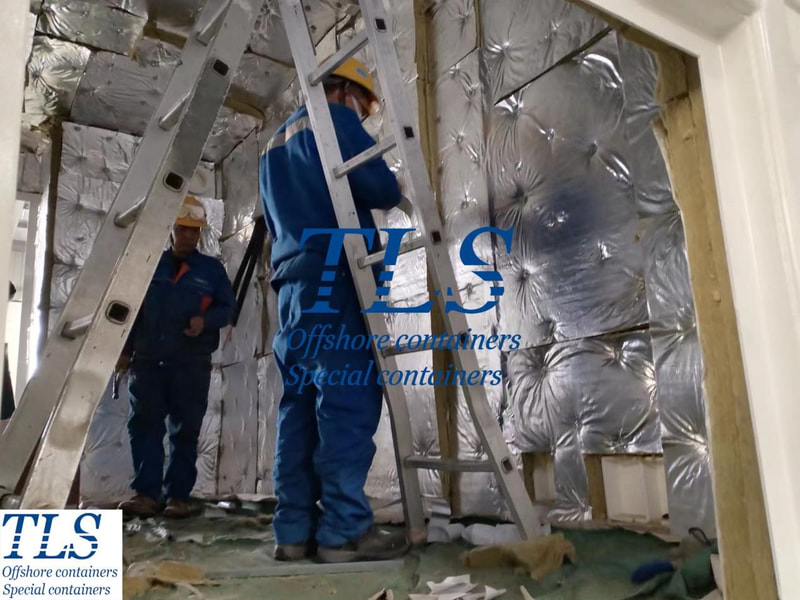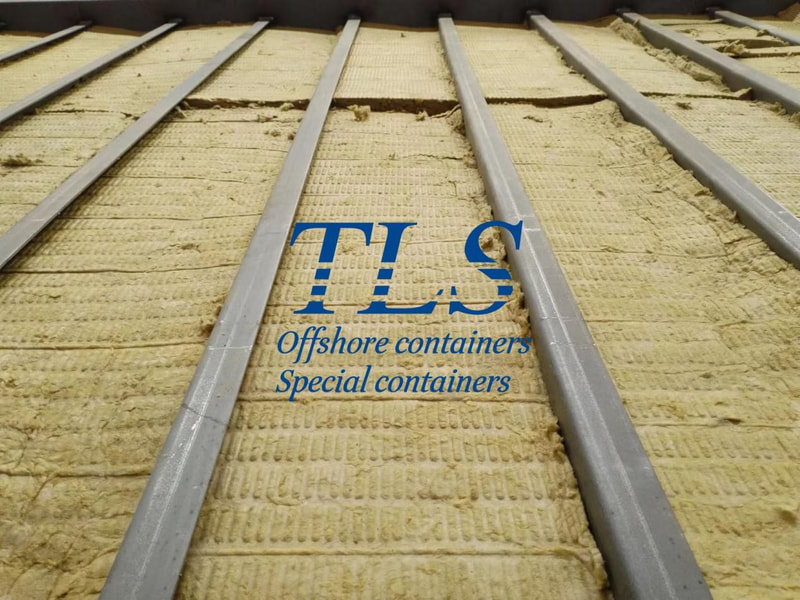|
Container heat insulation and fire protection design involves creating a system within a container to safeguard its contents from external temperature fluctuations and fire hazards. This system typically incorporates insulation materials such as rock wool, glass wool, and polyurethane, along with fireproof materials like fireproof boards and coatings. TLS offshore containers are engineered to meet the A60 fire protection standard, typically utilizing rock wool as an insulating material. Rock wool, composed of basalt or lava mineral fibers, offers several advantageous properties:
Employing rock wool as an insulation material in containers offers benefits in terms of thermal insulation, fire resistance, soundproofing, and environmental sustainability. When designing an insulation system, it's crucial to consider factors like insulation requirements, cost, and durability to determine the appropriate rock wool thickness and density. Additionally, compliance with relevant fire protection and environmental standards must be adhered to during installation. In container heat insulation and fire protection design, several key aspects should be considered:
Container heat insulation and fire protection design is a multifaceted endeavor, requiring a holistic approach to factors like insulation, fire protection, fire prevention systems, and operator safety. Throughout the design process, factors like cargo type, container characteristics, and budget constraints must be thoughtfully considered to determine the most suitable heat insulation and fire protection scheme. TLS Offshore Containers / TLS Special Containers is a global supplier of standard and customised containerised solutions. Wherever you are in the world TLS can help you, please contact us. #Rock wool #Fireproof boards #Fireproof coatings #Thermal insulation #Fire resistance #Sound absorption #Environmental protection #Safety #A60 fire protection standard #Temperature stability Written by OliverComments are closed.
|
Archives
July 2024
Categories
All
|
- Home
-
Containerised solutions
- Intelligent pressurised container | MUD logging cabin
- Battery energy storage system (BESS) container
- Flexible grid tied battery storage system
- Laboratory container | workshop container | Equipment containers
- Temporary refuge shelter | Toxic gas refuge | Safe haven
- Offshore accommodation cabin | office container
- Reefer container | Refrigerated container
- Intelligent waste water treatment container
- Fresh water generator container
- Cargo Containers
- Product photos & videos
- News & Blogs
- Contact us
|
Featured products
Intelligent pressurised container Temporary refuge (TR) shelter, toxic gas refuge (TGR) Battery energy storage system (BESS) container Containerised waste water treatment plant Fresh water generator container Reefer container Laboratory container, Workshop container Accommodation container Offshore closed container |
All Rights Reserved 2020 © TLS Offshore Containers / TLS Energy
|


